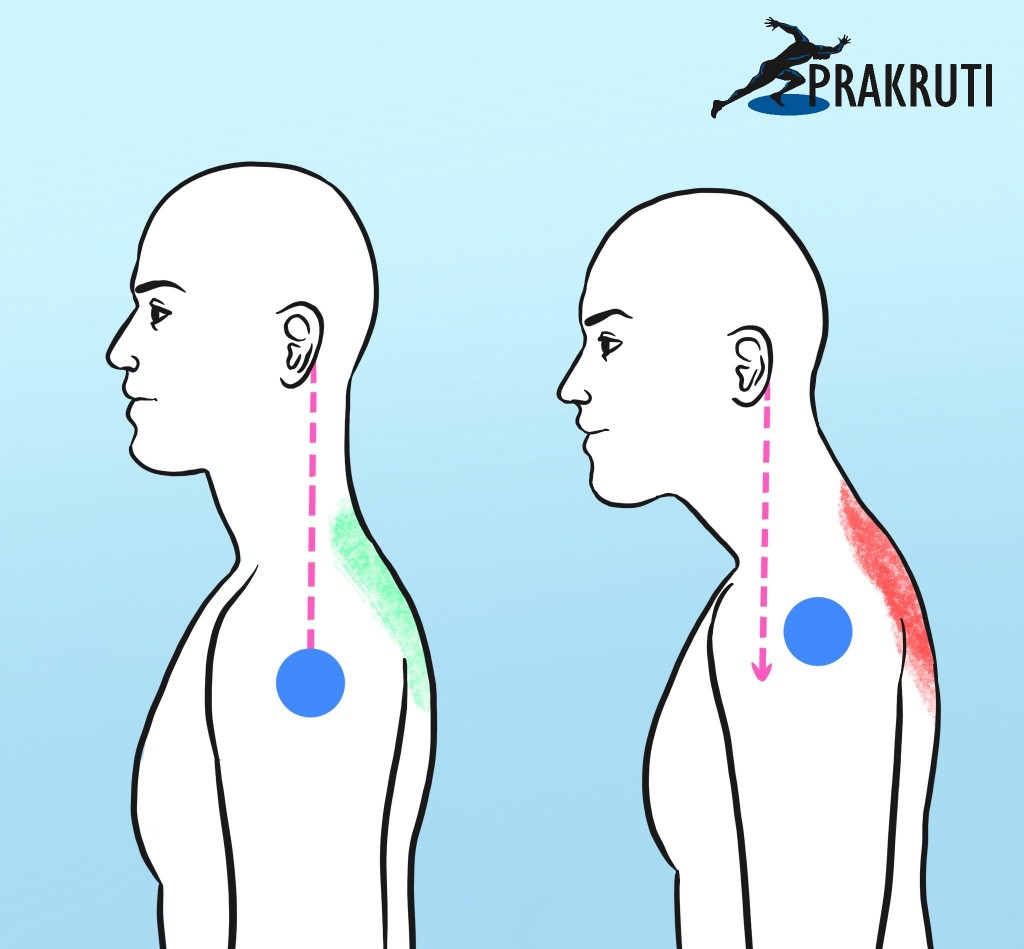 Everyone knows that if you work at the desk whole day, you are likely to suffer from neck pain.In the last 7 months when we have been in lockdown mode, with the “work-from-home” orders, most of the calls I got from patients were with complaints of neck-and-shoulder pain, as they were working long hours; sitting in uncomfortable positions on beds, sofas, and dining chairs. To make matters worse, as you all know, the emotional stress has been high too! Most people suffered neck pain, specifically pain in the trapezius muscle.
Everyone knows that if you work at the desk whole day, you are likely to suffer from neck pain.In the last 7 months when we have been in lockdown mode, with the “work-from-home” orders, most of the calls I got from patients were with complaints of neck-and-shoulder pain, as they were working long hours; sitting in uncomfortable positions on beds, sofas, and dining chairs. To make matters worse, as you all know, the emotional stress has been high too! Most people suffered neck pain, specifically pain in the trapezius muscle.
Buying the correct chair, table, and all the right gear to make your working posture ergonomically sound, is part of the solution to this occupational challenge. But I want to talk to you about another matter today.
Even with the best, and most appropriate furniture, you are still likely to develop neck pain if you work at a desk for long hours each day, especially under stressful, or demanding conditions.
Our natural, and most desirable posture is with the head placed directly over the torso in such a way that the ears and the shoulders are kind of aligned. This way, the large Trapezius muscle at the back of our neck, is relaxed. But, when we are engrossed in reading, writing, or we are concentrating on a laptop, we ALWAYS LEAN IN, moving our head ahead, and our ears ahead of the shoulder line.
You can do just some relaxed reading, or regular scrolling, while sitting in the correct posture, but the minute some urgent, last-minute work deadline comes up, you will unconsciously shift that head forward and lean in!
This is how we are ALL genetically programmed to perform well. Our brain engages best with the task at hand if we lean into our work. If you want to perform well, or meet a deadline, this is also something you will want to do.
The minute your head moves forward, the relaxed Trapezius muscle must contract, and maintain that contraction for as long as you continue working, so that you can keep your head in this position till you finish that work. Mental stress also leads to a slight hunching of our shoulders, leading to more Trapezius contraction. We know that a work deadline, and mental stress often go hand in hand. Now, imagine if you must work at this intense level for eight hours a day: A tightly contracted Trapezius for eight straight hours is definitely going to generate pain.
So, getting yourself the right gear is very important, but it is not enough. It is also very important to get up and move, or just interrupt your intense concentration often through your long day. Keeping the Trapezius muscle in a state of constant static contraction for very long hours, is terrible for the long-term health of your cervical spine, shoulders, and low back.
So, pause, take a small break, do some stretches, walk around, chat with your colleagues or family (in person, not on the phone), and then get back to work. Do this several times a day.







